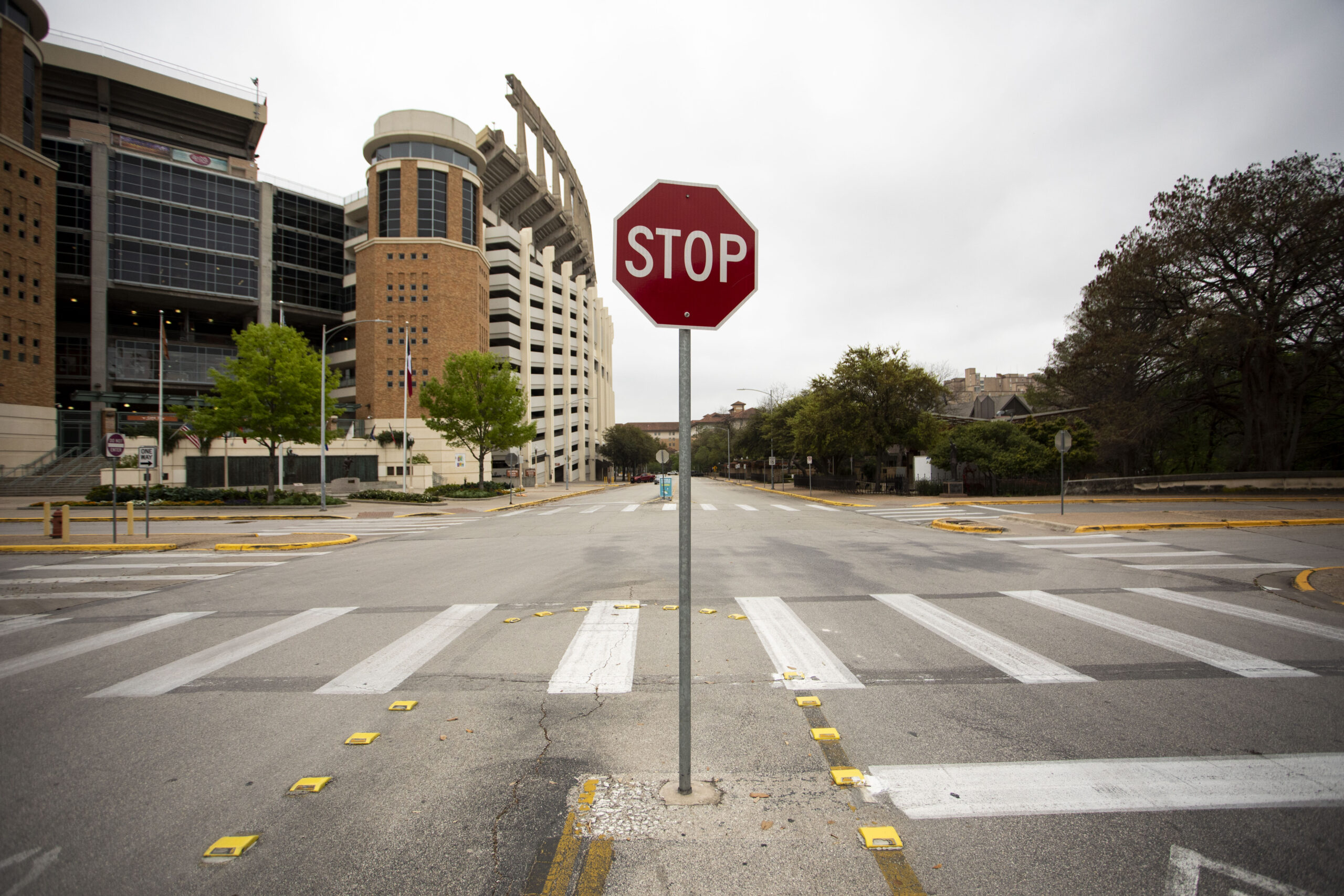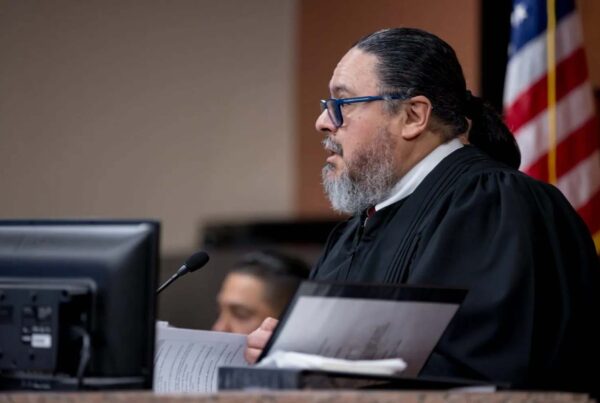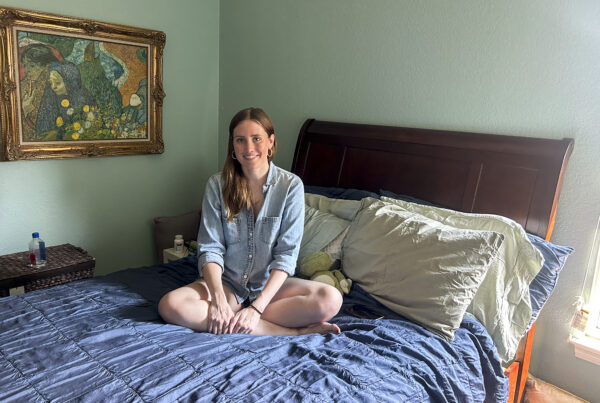If you’re someone who can’t help but feel that the pandemic messed with your sense of time, you’re not alone. Whether 2019 felt like just yesterday or a lifetime ago – or perhaps a bit of both, somehow – the phenomenon of time disorientation during disasters is a real, documented thing.
Recently, sociologists at Baylor University looked at how our perception of time was warped by the pandemic, and how that correlates with mental health. Professors Paul Froese and Matthew Andersson joined Texas Standard to talk about their research, and why some people felt the effects of time disorientation more than others. Listen to the interview above or read the transcript below.
This transcript has been edited lightly for clarity:
Texas Standard: Well, first, what does existing research say about the way that we experience altered time perception when disaster hits? Paul, if I could ask you first.
Paul Froese: Sure. Like in the sociology of time, for a long time we’ve known that modernization kind of speeds up time or speeds up our sense of time in that we feel rushed. There’s more things we have to take care of. And so there’s a kind of a long literature on that.
And then also this idea that there are times when things are going bad – there could be some trauma, some sort of event that upends things – and that can also kind of change people’s sense of time, disorient them. And one of the ways it does is that you feel that days and weeks are blended together, and so you don’t really have a sense of where you are in the calendar, on the clock. And that has a lot to do with something like a pandemic, where kind of routines are upended and therefore we have a disorientation of time.
I was looking at the scholarly piece that you did – “Out of Time, Out of Mind: Multifaceted Time Perceptions and Mental Well-Being during the COVID-19 Pandemic,” coauthored by both of you, Matt and Paul. I’m curious what data you used and how you went about trying to figure out whether these time perceptions… Perceptions being such a slippery thing, what were you looking for?
Matthew Andersson: I’ll hand this off to Paul really quickly here, but we were looking for people’s sense of weather over the past three months, they felt that time was moving too quickly, too slowly. Like Paul said, our days and weeks blending together.
So it was a national survey. We had about 1,200 respondents. We got folks from around the United States, and we were linking these perceptions – which, as you said, are slippery – and just trying to understand, are they related to mental health states?
And we found a strong association above and beyond objective time. How many hours people were working. The actual pace of the day. So the perceptions matter.
Paul Froese: Well, I’ll say one kind of innovative part of the research, which was in our the Baylor Religion survey, was Matt and I, we wrote these items that were more diverse.
So, for instance, a lot of studies of time talk about being feeling rushed, right? But what we also asked about was this idea of time moving too slowly. And we found that, for instance, people who felt very lonely, time slowed down for them also. People who felt kind of financial hardship during the pandemic felt time was slowing down.
And then the last innovation was this idea of, well, maybe there’s just a blending of things. And another kind of data point there was that these things are correlated so that it’s possible to feel like time’s moving slowly, but things are blending together, or time’s feeling rushed at some point and things are blending together.
And so people can kind of move through these different orientations depending on what’s happening to them during the day.
» GET MORE NEWS FROM AROUND THE STATE: Sign up for Texas Standard’s weekly newsletters
Texas Standard: But I guess that’s the thing, because I’ve often heard that for people suffering from depression, for example, that the times tends to slow down. I may have that wrong, but that was my sense of it.
And it sort of seems difficult to tease out what the factors are here in altering our perception of time. Did you find a consistency among people who had experienced life through the pandemic? And I wonder if all generations… Surely there must have been a lot of diversity about how people experienced a sense of time post-pandemic.
Matthew Andersson: Absolutely. So what we did find is that, exactly as you just said, feeling rushed or pressed for time or that time is moving too slowly, as in depression, those are both related to mental health. So we were able to show for the first time that it’s not just slower or a rush – both of them matter for mental health.
And in terms of different generations, we were curious about those different generations. So what we looked at as a substitute for that was just people’s age. And what we found for age is that older folks were less likely to feel rushed or pressed for time. That may be linked to retirement. They were less likely to feel that time moves slowly and that could be because they lead lives that are more purposeful at older ages. They have more of a sense of purpose, perhaps.
Texas Standard: What about younger people? Because we hear so much, certainly in the popular media, about younger people suffering greater rates of mental health issues. And I’m curious about whether or not you saw this correlation between a shifted perception of time and what we’ve been hearing, certainly in the media.
Paul Froese: In terms of age… Because our questions were specific to COVID, what we found was this kind of age effect where younger people were feeling more disoriented. And probably the reason for that is that their routines were upended more so than somebody who, let’s say is retired, where maybe their life changed a little bit but didn’t change that much.
Texas Standard: You know, I think for a lot of people, there’s this lingering sense that this didn’t end with the pandemic – still feeling not quite right about when things have happened. Did this come up at all in the course of your research?
Matthew Andersson: That’s a great point. I mean, what we don’t know is whether folks have restored a sense of what these researchers would call “synchronicity.”
So any time disorientation is going to mean that folks don’t feel that their sense of time is lined up with the clock on the wall or the digits on their smartwatch, right? And so what we don’t know is, is this disorientation still going on now that, by many narratives, we’re post-COVID right now, the way many people are viewing it?
So we do want to do a follow up data collection on that. We’re not sure.
Texas Standard: Well, I guess the corollary to that is for those who still feel like they’re out of sync, will that perception ever get back to normal?
Matthew Andersson: Well, I think by the research that we were building on, I would expect it would.
What I expect will not get back to normal are specific memories or specific stressors that they still may be coping with, but their sense of time, I think would, because I do believe based on our findings and also previous research, that these days orientations are what we would call states, not traits.
Paul Froese: It all depends on to what extent does a society get back to a routine that feels normal and feels like you can you know what to expect from day to day. And I think just anecdotally – we all would say this – is that the pandemic is still kind of with us. We feel these kind of lingering effects. And clearly, future research will kind of spell this out in more detail.














